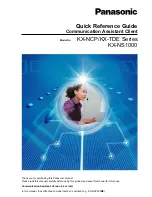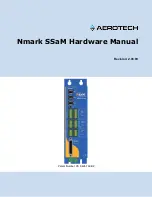
6 GB/IE
If your seat is equipped with armrests, proceed as described
under fig. 11. Otherwise go to fig. 15.
Fig. 11:
Pull the cover down as far as the armrest. The cover must be
tightly fitting on top.
Fig 12:
Cut the cover in the position of the armrest. The cut-out may
not be too large.
Fig. 13:
Push up the armrest and pull it through the cut-out opening
of the cover.
Fig. 14:
Pull the strap through between the seat and the backrest and
close with the fastener.
If your seat is equipped with side levers, proceed as described
under fig. 15. Otherwise go to fig. 19.
Fig. 15:
Cover the seat as described under section 2. The cover must
be tightly fitting on top.
Fig. 16:
Cut the cover in the position of the side lever. The cut-out may
not be too large.
Fig. 17+18:
With the aid of scissors, push the cover under the guide fitting.
If your seat is equipped with seat frame cladding, proceed as
described under fig. 19. Otherwise go to fig. 22.
Fig. 19:
(for Renault) Open the seat frame cladding under the seat.
Fig. 20:
(for Mercedes) Open the seat frame cladding under the seat.
Fig. 21:
Fold the seat frame cladding under the seat cover. Pull the
strap through between the seat and the backrest. Then close
the fastener at the back.
Fig. 22:
Cover the headrests.
Fig. 23+24:
Position the mounting strip directly above the holes for insertion
of the headrest. Cut open the mounting strip in the exact
positions of the headrest holes. With the aid of the integrated
mounting strip, it is not possible for the material to tear.
Fig. 25+26:
Push the cover beneath the plastic of the headrest guide
covering. In a few isolated car models, it could be the case
that these models have no headrest guide covering.
Fig. 27+28:
Pull the cover for the back seat towards the back of the seat.
If necessary, tilt the back seat forward and fasten the rubber
loops at the back to the metal hooks (according to the car
model).
Fig. 29:
Position the cover exactly in the location of the seat belt.
Fig. 30:
Carefully cut the cover in the position of the seat belt.
Fig. 31:
Push the cover under the seat belt holder.
Fig. 32:
Pull the cover under the backrest. The cover must be under
the seat belt!
Fig. 33:
Cut the cover in the position of the belt guide.
Fig. 34+35:
Push the cover beneath the plastic of the belt guide.
Fig. 36:
The backrest cover is universally suitable for all back seats
due to the triple zip fastener division. The zip-in part can be
used according to the width of the rear backrest.
Fig. 37:
Fasten the rubber loops at the back to the metal hooks.
If your your back seat is equipped with armrests, proceed as
described under fig. 38. Otherwise go to fig. 40.
Fig. 38:
Open the zip fasteners. Fold out the armrest. Close the zip
fastener up to the armrest.
Fig. 39:
Complete covered armrest.
Fig. 40:
In case of divided back seats, open the variable zip fasteners
with the slider facing upwards if necessary.
Fig. 41:
Remove the rear headrests.
Fig. 42:
Cover the rear headrests.
Fig. 43:
Cut the backrest cover in the position of the headrest in an
x-shaped form.
Fig. 44+45:
Push the cover under the plastic.
Instructions for care and disposal
Wash the covers by hand
Do not use bleach
Do not dry in a tumbler
Do not iron
Do not dry clean
The seat covers can be disposed of in the household waste.
Please dispose of the packaging in accordance with the local regulations.
Service
Please contact our Service Hotline in the first instance, before you return the
seat covers to the manufacturer.
Service address:
Walser Industrie- und Handels GmbH
Langenweg 34
DE-88131 Lindau
Germany
Return address:
Walser Customer Service Germany
Walser GmbH
Bleicheweg 15, Postfach 3325
D-88131 Lindau
Germany
Telephone number of Service-Hotline: 00800 00300030
www.walsergroup.com / clix
IAN 93685





































